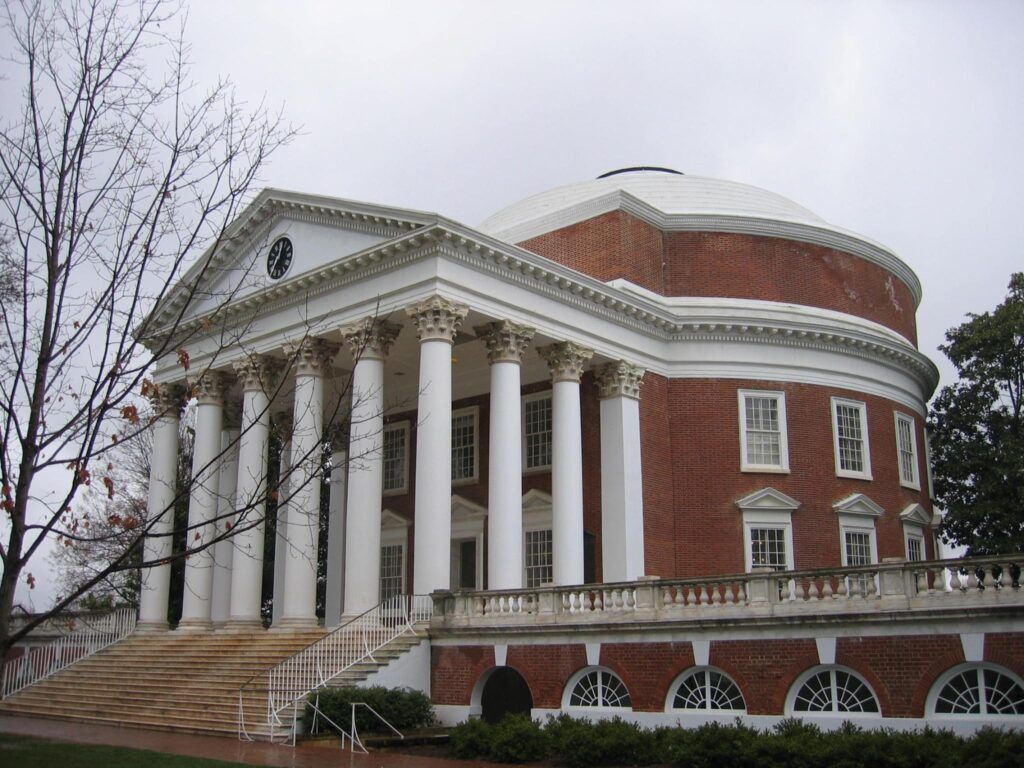The University of Virginia has reached an agreement with the U.S. Department of Justice to end race-based admissions and hiring and to halt other illegal diversity, equity, and inclusion (DEI) initiatives as part of resolving a civil rights investigation, after facing five separate inquiries into different aspects of its practices. This development forces a campus rethink of hiring, recruitment and programming policies and puts federal compliance at the center of academic life. The deal signals a broader emphasis on equal treatment under the law and scrutiny of institutional preferences.
The DOJ’s intervention means UVA must stop using race as a factor in admissions and in hiring decisions, and it must dismantle any DEI programs deemed unlawful. For Republicans and others concerned with fairness, this outcome affirms the principle that public institutions should treat people as individuals rather than by group identity. It also shifts the debate from abstract ideals to concrete, enforceable rules.
UVA faced five inquiries that covered different parts of campus policy and operations, a level of oversight that underlines how wide-ranging the concerns were. Those probes examined not just admissions, but hiring practices and the structure of DEI offices and initiatives across the university. When multiple inquiries converge, it sends a clear message that federal authorities were looking for systemic issues, not isolated mistakes.
Ending race-conscious policies has practical consequences for administrators and faculty who built programs around DEI staff and priorities. Departments will need to review hiring criteria, rework job postings and rethink how they pursue diversity goals within the bounds of the law. This is not about hostility to diversity; it is about ensuring university actions align with constitutional and statutory protections.
For students, the shift affects recruitment and admissions outreach that previously emphasized race as a factor. Applicants should expect a process focused on individual qualifications and experiences rather than racial classifications. That change could alter the makeup of classes over time, and it will certainly change how admission officers evaluate candidates.
The agreement also spotlights campus culture and how universities balance free expression with inclusive environments. Critics on the right argue that DEI offices often stifle dissent and prioritize ideology over academic merit, and the DOJ action will be seen as a corrective by those who want clear limits. Supporters of campus pluralism will be watching how UVA replaces programs to maintain a welcoming campus without crossing legal lines.
Federal oversight brings accountability but also raises questions about enforcement and monitoring. The university will need transparent reporting and clear benchmarks to show compliance, and the DOJ may require periodic reviews. That process can be uncomfortable, but it is intended to prevent recurrence of practices that violate civil rights statutes.
Lawful diversity efforts that focus on broadening outreach, mentoring and economic opportunity can continue, provided they are race-neutral in design and execution. Programs aimed at supporting low-income students, first-generation scholars or under-resourced schools can survive and should be emphasized as lawful ways to expand access. This approach preserves the goal of opportunity while avoiding unconstitutional race-based decision making.
For policymakers and campus leaders, the UVA case offers a blueprint for balancing legal obligations with the desire to foster inclusive academic communities. Republican voices will stress that rule of law, individual merit and equal treatment must guide institutional policy. The coming months will show whether UVA’s revised policies meet both the letter of the agreement and the practical needs of students and faculty going forward.



